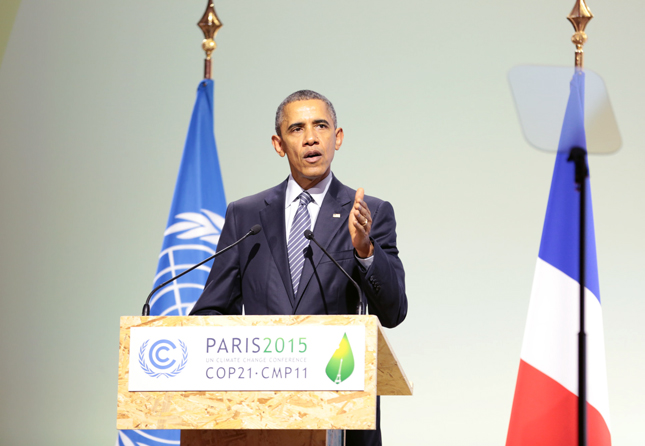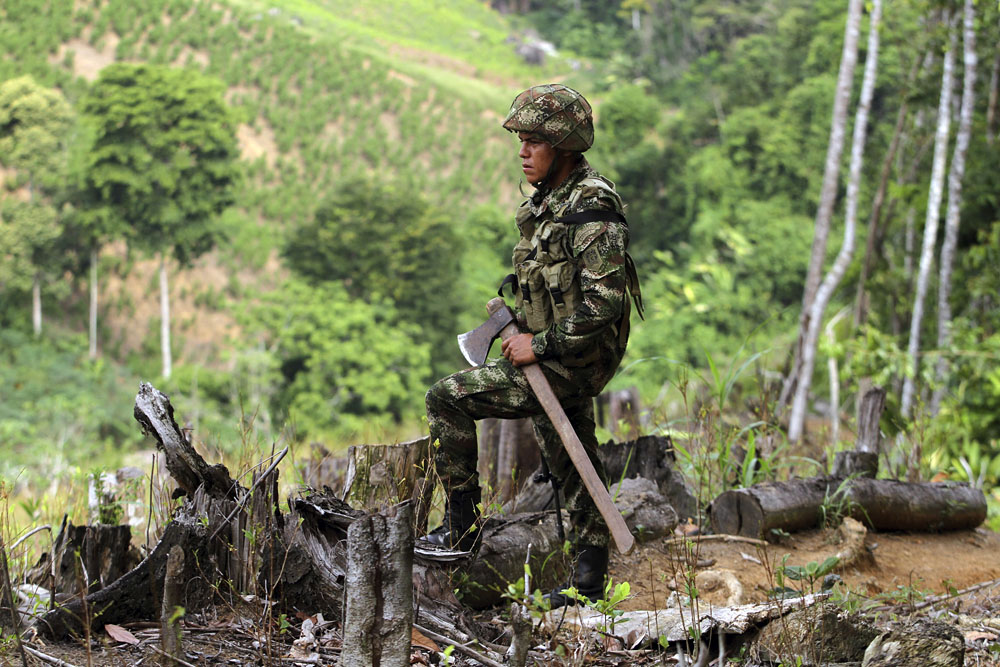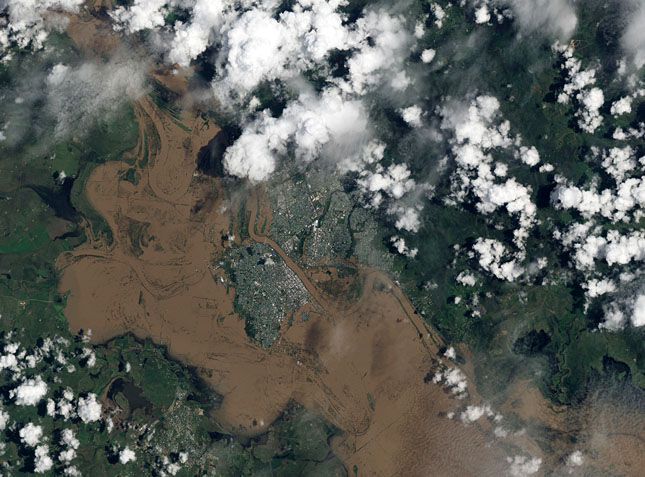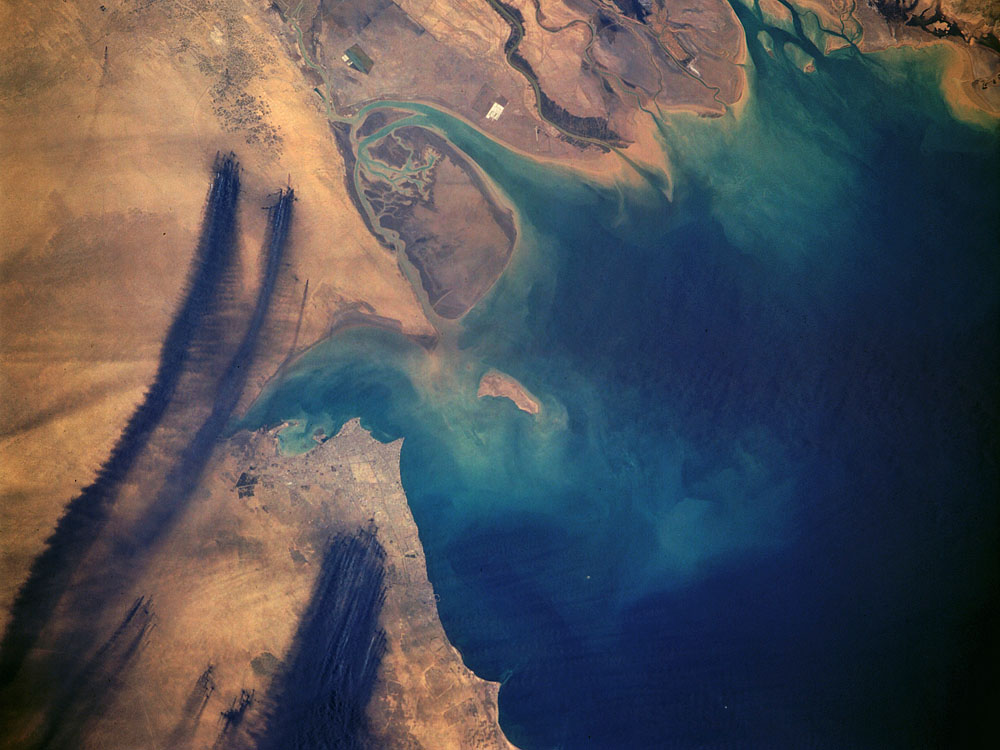-
John Wihbey, Yale Climate Connections
Nuancing “Climate Refugee” Language and Images
›December 18, 2015 // By Wilson Center Staff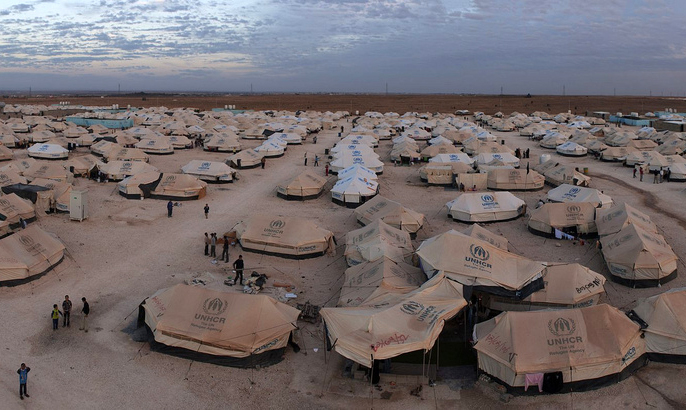
Migrants and Syrian refugees have become the new “stranded polar bear” of climate change imagery. But most such impacts will seldom be so dramatic or camera-ready.
-
Tracking National Security in the Paris Outcome
›
Security was inseparable from the climate talks in Paris, from the safety of conference participants to how climate change impacts the stability of nations.
-
The ECC Factbook Illustrates How the Environment Can Contribute to Peace and Conflict
›In his speech on climate change and national security on November 10, Secretary of State John Kerry said climate change is already a “threat multiplier,” and that worse is to be expected if climate change continues unchecked. But the relationship between the environment and violent conflict is complex and often indirect. Researchers have been wrangling for years over the role that global environmental change plays in fueling conflict and state fragility.
-
Will a Welcome Peace Derail Colombia’s Sustainable Development Plans?
›When Colombia is in the news, it’s not necessarily for the reasons we Colombians would like. We have lived through 50 years of violent conflict. Peace is a very abstract idea to most of us. Despite this we are still some of the happiest people on Earth.
-
Shiloh Fetzek, A New Climate for Peace
Geothermal Expansion in Kenya Prompts Land Conflict With Maasai
›November 16, 2015 // By Wilson Center Staff
The booming geothermal industry in Kenya illustrates how rapid transitions to renewable energy systems can risk generating conflicts if they are not done with sensitivity to the impact of transition on marginalized populations and to local ethnic and political dynamics.
-
Kerry Announces New Task Force to Integrate Climate Change and Security Issues Into U.S. Foreign Policy
›November 13, 2015 // By Lauren Herzer Risi
In a commanding speech at Old Dominion University this week, Secretary Kerry announced a dramatic step toward integrating climate and security into U.S. foreign policy. In Norfolk, Virginia, home to the world’s largest naval station, Kerry said the State Department is creating a new “task force of senior government officials to determine how best to integrate climate and security analysis into overall foreign policy planning and priorities.”
-
Military Leaders: Climate Change, Energy, National Security Are Inextricably Linked
›In the midst of a minefield on day two of Desert Storm Task Force Ripper, Marine Corps Operations Officer Richard Zilmer stepped out of his armored personnel carrier, squinted up at the sky, and saw nothing but black from horizon to horizon. Iraqi forces, trying desperately to blunt the attack of coalition armies, had set fire to hundreds of Kuwaiti oil wells and oil-filled trenches.
-
Rachel Stern, Thomson Reuters Foundation
Despite Rising Concern, Climate Change Often Put on Back Burner in Conflict Zones
›October 23, 2015 // By Wilson Center Staff
Barren barley and wheat fields stretch across the dry landscape of northern Afghanistan, the result of persistent drought and flash flooding that has left thousands of people facing food shortages and loss of work.
Showing posts from category conflict.


